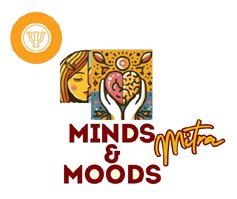Love after Trauma: Healing in Romantic Relationships
Love after trauma is a deeply personal journey that intertwines healing, vulnerability, and rediscovery. Emotional scars from past experiences—such as abuse, neglect, betrayal, or loss—often shape how individuals connect with partners. With guidance from a Psychologist or Mental Health Counsellor, rebuilding trust and intimacy becomes possible through compassionate and structured therapy. In Nagpur, expert professionals like RRIMI BODALKAR, a Sr. Psychotherapist / Mental Health Counsellor, help couples and individuals overcome emotional blocks through Behavioral Therapy, CBT, REBT, and DBT techniques.
Understanding Trauma and Its Impact on Love
Trauma alters the brain’s response to love and safety. Survivors may struggle with trust issues, fear of abandonment, emotional detachment, or hypervigilance in relationships. These behaviors often stem from past experiences that taught the mind to protect itself. Such patterns may interfere with forming or maintaining healthy bonds, making professional support from a Depression therapist, Relationship counsellor, or Trauma therapist essential.
Common Symptoms of Trauma in Relationships
- Emotional numbness or withdrawal from a partner.
- Difficulty trusting or constant suspicion.
- Flashbacks or triggers related to past experiences.
- Overdependence or fear of being alone.
- Sudden anger, irritability, or anger management issues.
- Negative thinking patterns leading to self-blame or guilt.
- Intimacy avoidance due to emotional fear or trauma responses.
Causes and Triggers of Relationship Trauma
Relationship trauma can emerge from various experiences such as:
- Childhood neglect or emotional abuse.
- Infidelity or betrayal in previous relationships.
- Domestic violence or controlling behavior.
- Loss of a loved one or grief and loss trauma.
- Abandonment or attachment-related insecurity.
These experiences can distort self-image and perception of safety in love. Working with a Personal counsellor or Couple therapist can help individuals identify and manage these emotional triggers effectively.
How Therapy Helps Heal After Trauma
Therapeutic intervention plays a vital role in rebuilding emotional resilience and trust. Under the guidance of a skilled Psychotherapist or Mental Health Counsellor, individuals and couples can experience emotional relief and personal growth. The treatment process often includes:
- Cognitive Behavioral Therapy (CBT): Restructures negative thought patterns and replaces them with healthier beliefs.
- Rational Emotive Behavior Therapy (REBT): Addresses irrational fears and self-defeating thoughts affecting intimacy.
- Dialectical Behavior Therapy (DBT): Enhances emotional regulation and mindfulness to manage relationship triggers.
- Behavioral Therapy: Focuses on building positive habits, trust, and communication.
- Personality development counselling: Strengthens self-worth and confidence after emotional setbacks.
Steps in the Healing Procedure
1. Assessment: A Psychologist or Neuropsychological testing expert evaluates emotional and behavioral responses through Personality assessment, IQ testing, or Trauma therapy evaluation.
2. Identification of Patterns: Recognizing unhealthy coping strategies like avoidance, blame, or overdependence.
3. Therapeutic Sessions: Regular sessions at a Counselling center focusing on communication skills, empathy building, and forgiveness therapy.
4. Relationship Counselling: Involves both partners in exercises to rebuild emotional intimacy, guided by a Couple therapist or Marriage counsellor.
5. Emotional Reinforcement: Integrating new behaviors through confidence building counselling, anger management counselling, and negative thinking therapy.
6. Maintenance: Continued self-awareness and communication practices ensure long-term emotional balance.
FAQs on Love After Trauma
1. Can love truly heal trauma?
Love can be a powerful support system, but healing requires personal introspection and guidance from a professional therapist such as a Psychologist or Relationship counsellor.
2. How long does recovery take?
Healing varies by individual. With consistent therapy—such as CBT, REBT, or Behavioral therapy—progress may be seen within weeks to months.
3. Should both partners attend therapy?
Yes. Couple therapy and Marriage counselling can help partners communicate openly and build mutual empathy.
4. Can trauma return in future relationships?
Unresolved trauma may resurface, but with continued personal counselling and emotional management strategies, its effects can be controlled.
5. What therapies work best for trauma-related love issues?
Therapies like CBT, REBT, DBT, and Trauma therapy are highly effective in reprogramming emotional responses and improving communication.
Healing from trauma is not about forgetting—it’s about transforming pain into strength. With professional help from experts like RRIMI BODALKAR in Nagpur, love after trauma becomes an achievable reality. Through Behavioral therapy, Cognitive restructuring, and emotional empowerment, couples can rebuild trust, enhance intimacy, and rediscover the joy of connection.

